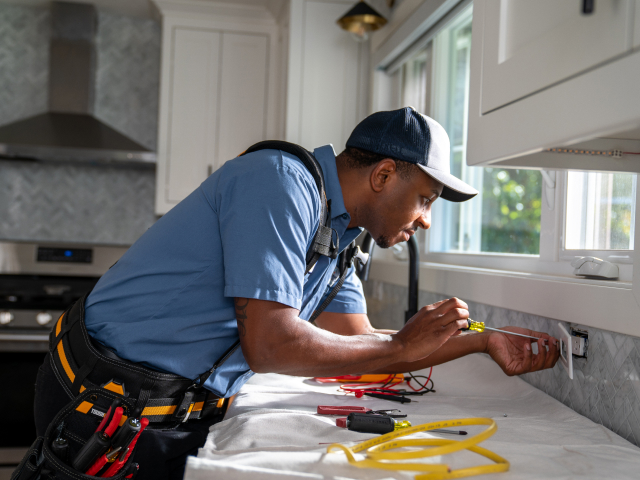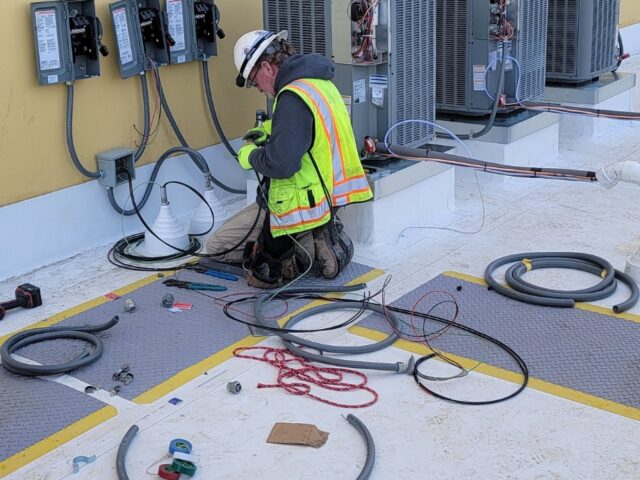
Importance of Regular Electrical Inspections
In today’s technologically driven world, electricity powers nearly every aspect of our daily lives. From the moment we wake up to the hum of our alarm clocks to the time we go to bed with our smartphones charging by our sides, electrical systems are integral to our modern existence. However, as essential as electricity is, it comes with its own set of risks if not properly maintained. This is why regular electrical inspections are crucial for ensuring home safety.
Understanding Electrical Inspections
An electrical inspection involves a comprehensive examination of a home’s electrical system by a qualified electrician. This process checks for any potential issues or hazards that could pose a risk to the safety of the home and its occupants. During an inspection, the electrician will assess various components of the electrical system, including wiring, circuit breakers, outlets, switches, and other critical elements.
Why Regular Inspections Are Essential
- Preventing Electrical Fires
Electrical fires are a significant hazard in homes and can be devastating. Faulty wiring, overloaded circuits, and malfunctioning electrical devices are common culprits. According to the National Fire Protection Association (NFPA), electrical failures or malfunctions are a leading cause of home fires. Regular inspections help identify and address these issues before they escalate into dangerous situations. By detecting problems early, homeowners can take preventive measures to avoid potential fire hazards.
- Ensuring Electrical Code Compliance
Building codes and electrical standards evolve over time to enhance safety and efficiency. Older homes, in particular, may have outdated electrical systems that do not comply with current codes. During an inspection, an electrician can ensure that your home’s electrical system meets the latest standards and regulations. This compliance not only enhances safety but also ensures that your home is up to code if you decide to sell it in the future.
- Avoiding Costly Repairs
Addressing electrical issues early can prevent more significant problems down the line. For example, a small wiring problem or faulty outlet might seem minor but could lead to more extensive damage if left unchecked. Regular inspections help identify and fix these issues before they require costly repairs or replacements. Investing in routine inspections can save homeowners from unexpected and potentially expensive electrical emergencies.
- Protecting Appliances and Electronics
Electrical systems that are not in optimal condition can affect the performance and lifespan of your appliances and electronics. Voltage fluctuations, power surges, and electrical imbalances can cause damage to sensitive equipment. By ensuring that your electrical system is regularly inspected and maintained, you help safeguard your valuable appliances and electronics from potential harm, extending their life and ensuring their efficient operation.
- Enhancing Energy Efficiency
An inspection is not just about identifying hazards; it also offers an opportunity to improve the efficiency of your electrical system. During the inspection, electricians can suggest upgrades or adjustments that can reduce energy consumption and lower utility bills. This might include recommending energy-efficient lighting, updating outdated fixtures, or improving insulation in electrical panels.
- Improving Overall Safety
A thorough electrical inspection goes beyond checking for immediate hazards. It also involves assessing the overall condition of the electrical system to ensure it operates safely and reliably. This includes checking for proper grounding, secure connections, and the functionality of safety devices such as circuit breakers and GFCI outlets. A well-maintained electrical system is less likely to pose risks to homeowners and their families.

When to Schedule an Electrical Inspection
Knowing when to schedule an electrical inspection is key to maintaining home safety. Here are some scenarios where an inspection is particularly advisable:
- Before Buying a Home: If you are purchasing a new home, an electrical inspection can reveal potential issues that might not be apparent during a regular home inspection.
- When Renovating: If you are renovating or adding new electrical outlets, lighting fixtures, or appliances, an inspection ensures that the new work integrates seamlessly with your existing system.
- In Older Homes: Homes that are more than 20-30 years old should have regular inspections, as older electrical systems are more prone to issues and may not meet current safety standards.
- Experiencing Electrical Problems: If you notice flickering lights, frequent tripping of circuit breakers, or any other unusual electrical behavior, it’s time to schedule an inspection.
Finding a Qualified Electrician
To ensure a thorough and accurate inspection, it is important to hire a licensed and qualified electrician. Look for professionals with good reputations and positive reviews. A reputable electrician will not only conduct a detailed inspection but will also provide clear explanations of any issues found and offer practical solutions. For more insights and further information about choosing the best electrical company, visit their page to learn more.
Conclusion
Regular electrical inspections are a fundamental aspect of home safety. They help prevent fires, ensure compliance with current codes, avoid costly repairs, protect appliances, enhance energy efficiency, and improve overall safety. By investing in routine inspections, homeowners can enjoy peace of mind knowing that their electrical systems are functioning safely and efficiently.
In a world where electricity powers so many aspects of our lives, taking proactive measures to maintain and monitor our electrical systems is not just a good practice—it’s a necessity. Don’t wait for an emergency to address potential issues. Schedule a regular electrical inspection and keep your home safe and secure.




